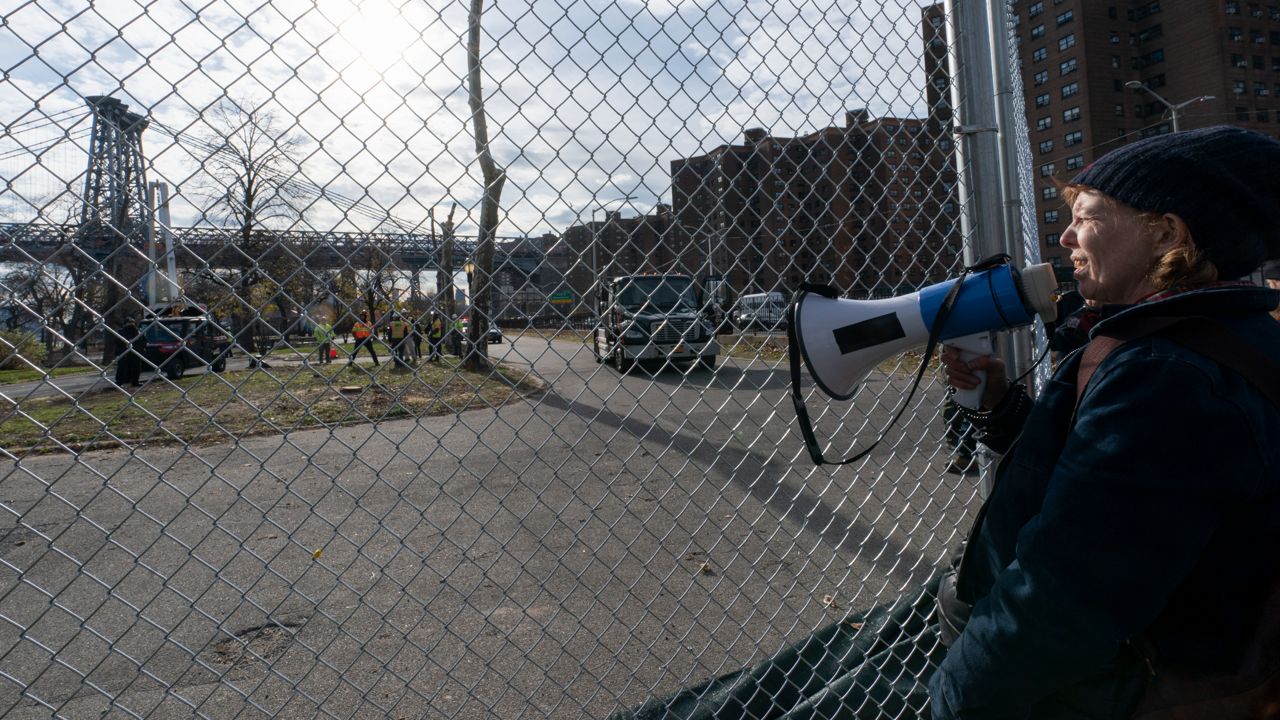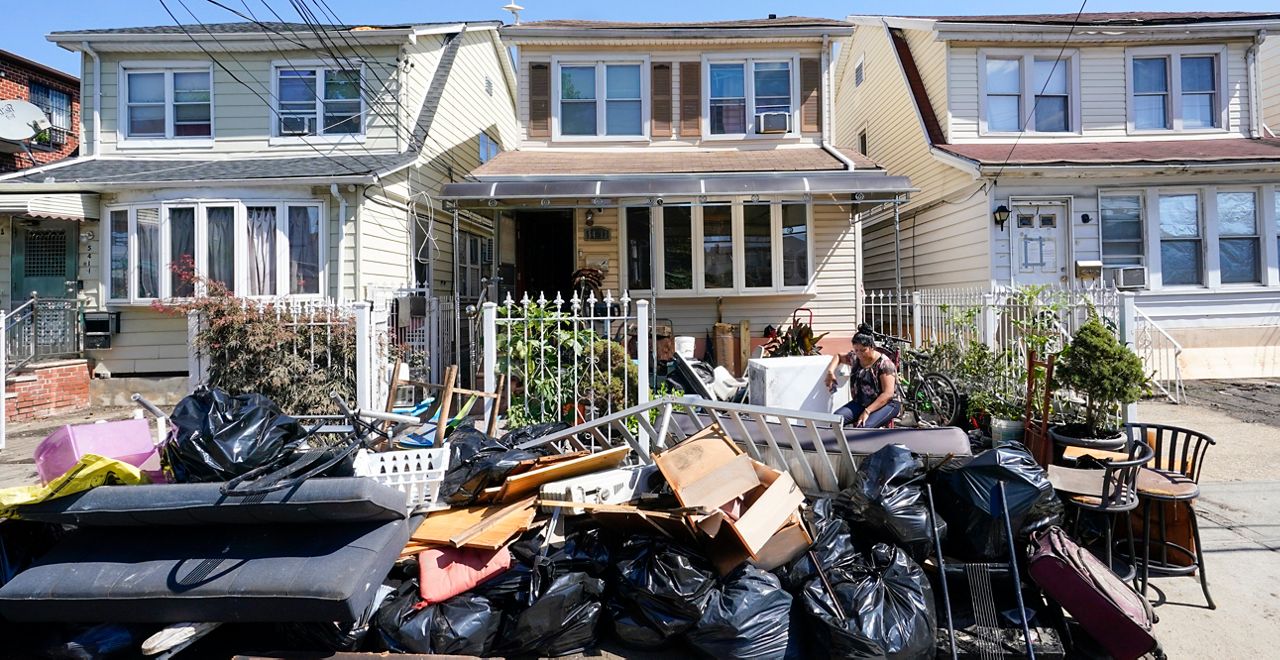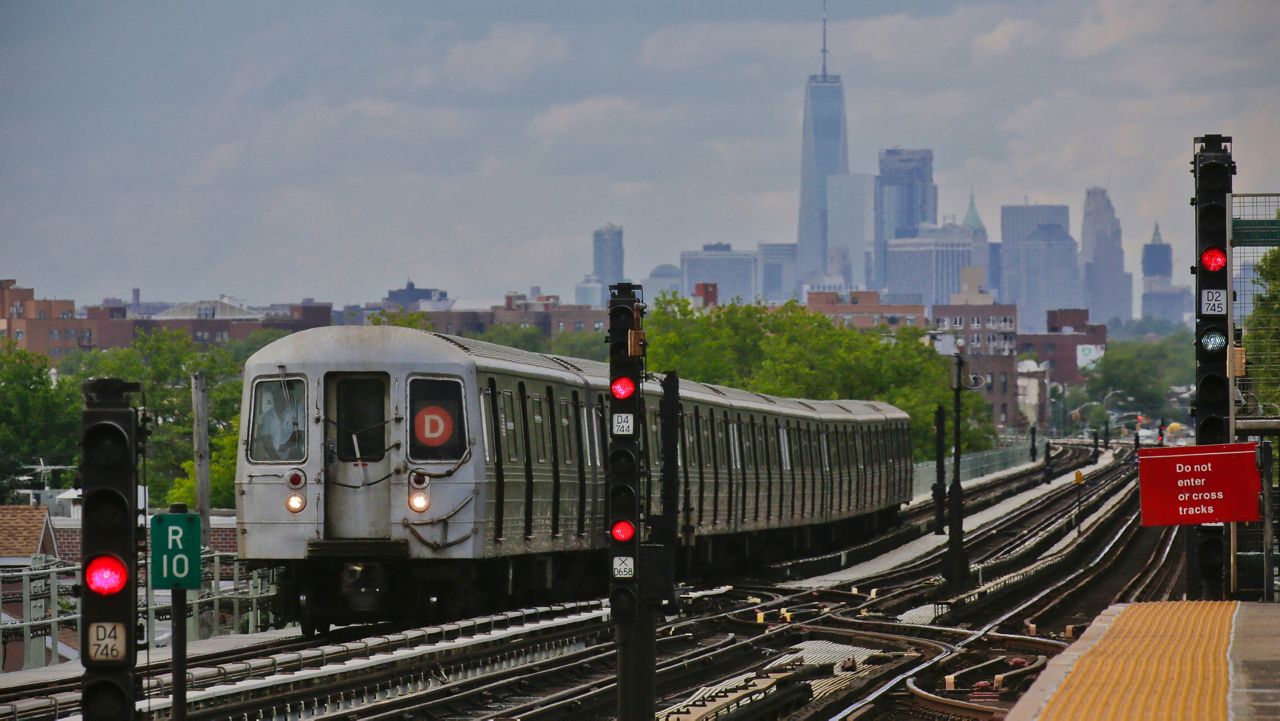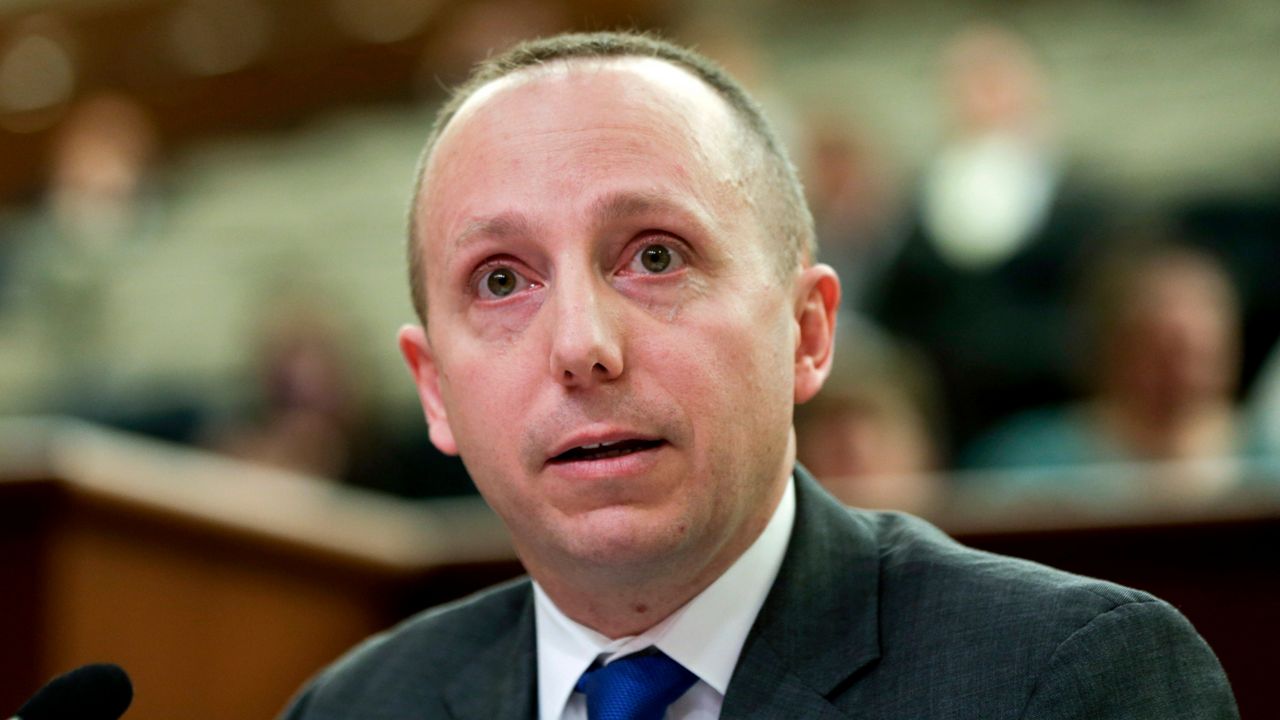A state appeals court judge halted construction Wednesday in the city’s effort to remake East River Park as a flood barrier for Manhattan’s Lower East Side, marking the second time in as many months that a legal challenge has stalled the city’s signature climate resiliency project.
While the last stoppage lasted weeks, the latest will likely stay in force for months due to the slower pace of the appeals court, according to the city and the lawyer for the plaintiffs in the suit.
The temporary restraining order issued by Judge Rowan D. Wilson comes as the city had only just begun preliminary work removing trees in the park on Monday, after legal challenges and pandemic-related delays pushed back the start date from the spring of this year.
“It’s one of those cases where you need an injunction because the injury really is irreparable,” said Arthur Schwartz, the lawyer for the activist group that brought the suit. “You start cutting down trees, you can't put them back.”
Schwartz estimated that the restraining order could last six months or more if the appeals court decides to keep the order in effect as it hears the case, even if arguments are put on an expedited schedule.
The activist group, East River Park Action, opposes the city’s reconstruction plan, which involves demolishing the park and building a new park, with similar amenities, on top of eight feet of fill. The raze-and-raise plan is the largest climate resiliency effort of Mayor Bill de Blasio’s administration, and city agencies have defended it as a major investment in flood protection alongside a large concentration of public housing.
“We remain confident in our strong legal position, and we look forward to continuing the essential work to keep New Yorkers safe from extreme weather,” Ian Michaels, the head of public information for the city’s Department of Design and Construction, which is overseeing the project, said in an emailed statement. “The contractor has secured the East River Park area, remains at the ready to resume work and is continuing to order supplies for future construction.”
Michaels noted that the city has already prevailed twice, in two different courts, in the lawsuit brought by East River Park Action, and that work on the northern section of the flood protection plan, at Asser Levy Park, is well underway.
The temporary restraining order, referred to as a TRO, could last as long as two months, according to Roderick Hills, Jr., a professor of local government law at New York University Law School.
"Just on its face, the notion that it's not a park purpose to prevent a park from getting flooded is so dumb that I'm astonished it could support a TRO, because probability of success on the merits is a component of granting a TRO," Hills said.
East River Park Action filed suit earlier this year against the city over the plan, alleging that the city illegally skipped a vote approving the plan in the state legislature.
Schwartz has argued that a state legislature vote on the East River Park project is necessary because the project is a unique, new way of building a park: both as public land and as a flood barrier.
Typically, however, alienation votes have been required only when a municipality intends to remove sections of parkland for non-park use. The city has argued that such a vote, called an alienation vote, is not necessary, because no parkland is being removed from public use.
Their lawsuit is one of three the city is facing over the park plan, including another suit also represented by Schwartz. That suit alleges that the city improperly awarded the contract to a building consortium even though the consortium’s bid did not meet the city’s stated requirements for subcontracting to businesses owned by women or minorities.
The delays in beginning construction work at the park have led the city to push back its completion date from 2025 to late 2026. The slowdown has endangered federal funding for the project — $135 million out of a $1.45 billion price tag for the entire construction effort, which includes flood protections in an area north of the park.
The city has argued in earlier legal filings that East River Park Action members should be required to pay the city millions of dollars each month if their lawsuit limits the federal funds.
Residents who support the plan say that the lawsuit only endangers their communities by pushing off flood protection for the area, even as hurricane seasons lengthen and flooding risks increase due to climate change.
Activists who oppose the plan say that it unnecessarily denies access to green space for local residents, and that the loss of the parks over 1,000 trees will hurt the area’s ecosystem.








